It’s well-established that cats love fish, especially tuna. When you open a can of tuna at home, your cat will likely curl around your ankles or leap onto the countertop, begging for some of your tuna. Before you concede and feed your cat a bowlful of tuna, there are some factors to consider. While there are benefits to letting your cat eat tuna, there are also potentially negative aspects.
Can Cats Eat Tuna?
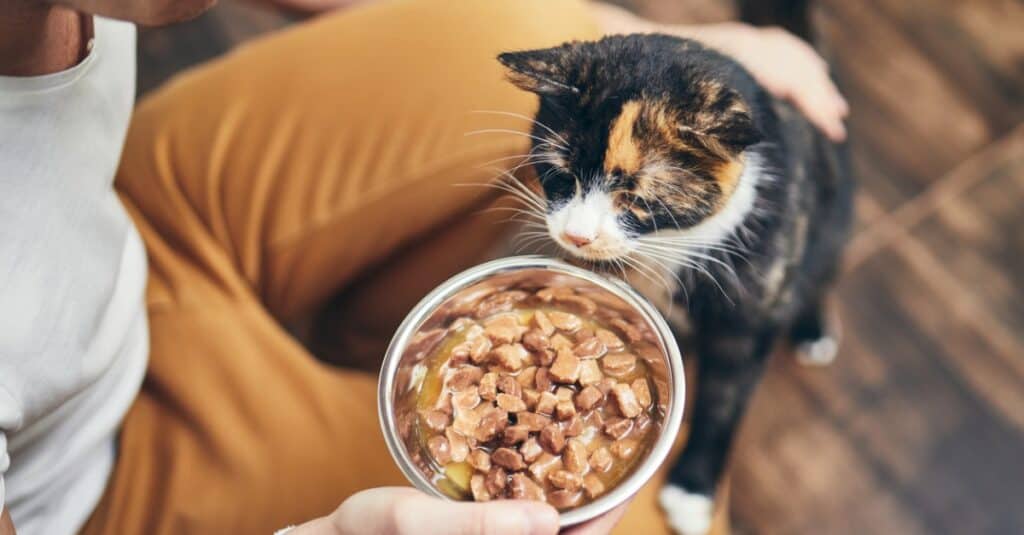
Cats love the taste of tuna, but don’t give them too much!
©Jaromir Chalabala/Shutterstock.com
They can, but only in moderation. Once in a while, tuna makes a delectable treat for cats. You can give your cat up to a tablespoon of tuna daily, which can be mixed with their regular food. However, tuna should never comprise your cat’s primary diet. Cats have specific nutritional needs that tuna alone cannot fulfill. Tuna should never account for more than 10 percent of your cat’s daily caloric intake.
Like any yummy treat, a little bit is fine but too much is inadvisable. Let’s look at some of the pros and cons of allowing your cat to eat tuna.
1. Can My Cat Get Mercury Poisoning From Tuna?
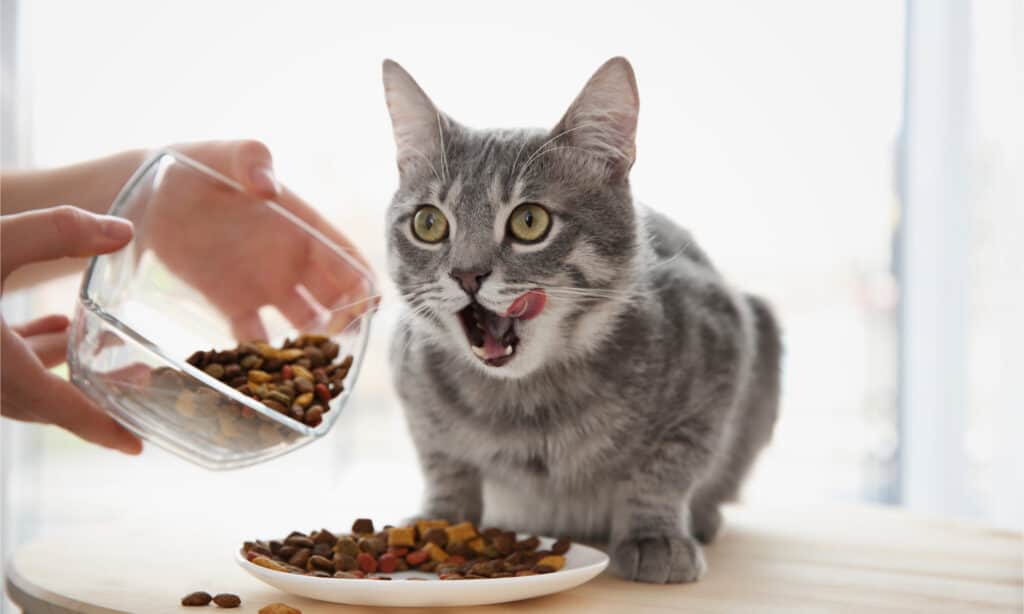
Some commercial cat foods incorporate tuna into their flavor blends.
©Africa Studio/Shutterstock.com
Some fish, particularly tuna, are susceptible to consuming large quantities of mercury found in their habitat. Although rare, cats that consume too much tuna can become ill. Symptoms include tremors or seizures, unusual behavior, vision problems, and the deterioration of motor functions. Mercury poisoning exhibits symptoms similar to other conditions that affect the nervous system. Tell your veterinarian if you suspect your cat has mercury poisoning.
2. Can Cats Become Addicted to Tuna?
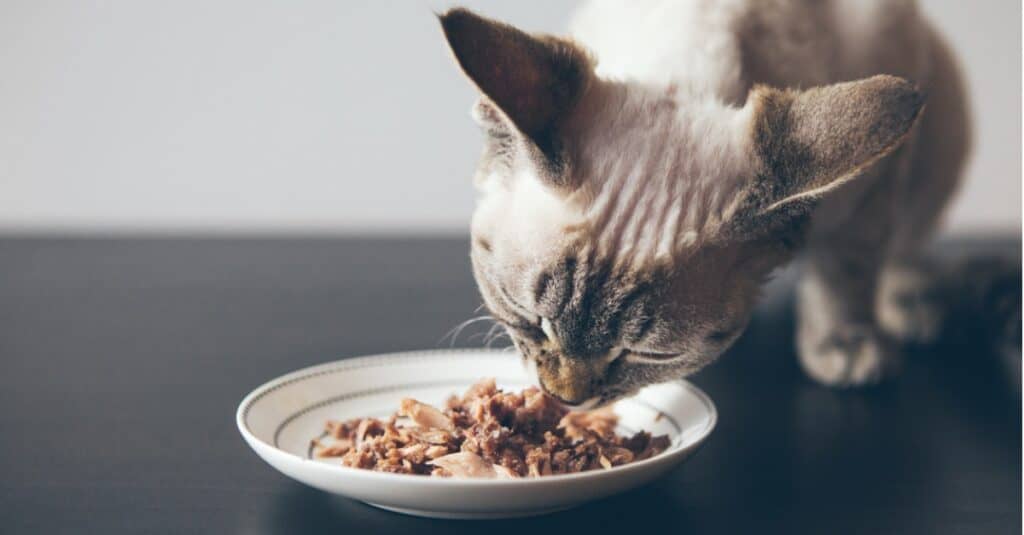
Some cats enjoy the taste of tuna too much!
©Veera/Shutterstock.com
Cats have a narrow range of tastes they can experience. Tuna has a strong flavor and a compelling aroma. Your cat may grow to love the taste of tuna so much that it refuses to eat its regular food. Not only can a steady tuna diet lead to obesity, but it can deprive your cat of important nutrients. If your cat develops a tuna addiction, you can help them kick the habit. Begin decreasing the amount of solid tuna you feed them. Add a small amount of tuna water to their dry food, gradually lessening the amount over time. Within a few weeks, your cat should be back to its regular diet.
3. Are There Benefits to Feeding My Cat Tuna?
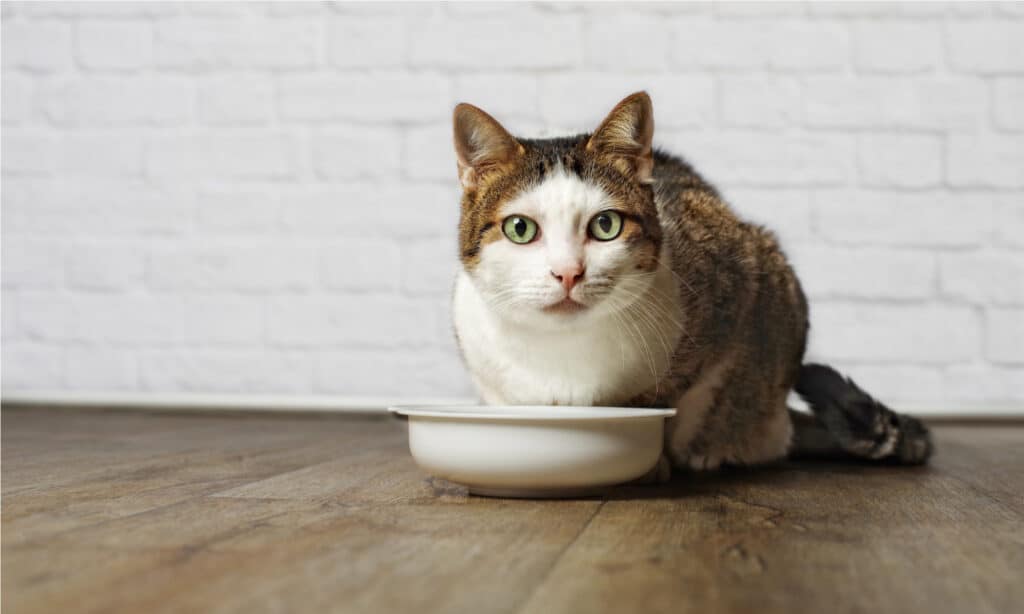
Tuna contains B vitamins that help nourish your cat’s central nervous system.
©Lightspruch/Shutterstock.com
There are good reasons to give your cat a little tuna now and then. Tuna contains essential Omega-3 fatty acids, which are important in minimizing the risk of inflammation. Protein and phosphorus, which are good for your cat, are also present in tuna. As a low-carb food, feeding your cat small amounts of tuna could help an obese cat lose weight. If you let your cat eat some canned tuna, aim for a light tuna packed in water. The heavy oils in which some tuna is packed can upset your cat’s stomach. If your cat is hesitant to swallow its medication, then try mixing it in with some tuna! A spoonful of tuna helps the medicine go down.
What Other Human Foods Can Cats Eat?
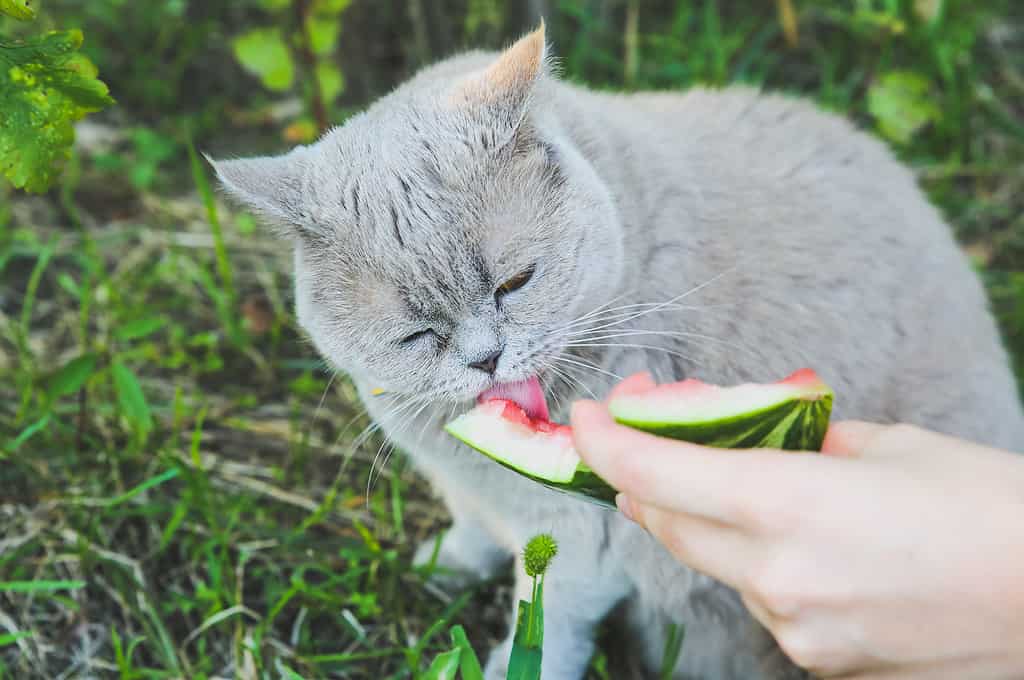
Small amounts of watermelon, minus the rind and seeds, are fine for your cat to eat!
©Only_NewPhoto/Shutterstock.com
Cats have specific nutritional needs that are best met by quality cat food. However, cats can eat small amounts of a surprising number of human foods. Pumpkin, prepared fresh and without any seasoning, has plenty of beneficial vitamins and fiber. Only offer them the inside flesh of the pumpkin, not the stem or the skin. Pumpkin seeds must be cooked first to minimize any choking hazard. Cooked unseasoned broccoli and asparagus are also safe for cats to eat. You can even feed your cats plain eggs! Cats may enjoy the texture of some fruits, like blueberries and strawberries! Those foods have nutrients and vitamins that are good for your cat. However, cats cannot recognize sweet flavors and may turn up their noses when you offer them fruit.
The photo featured at the top of this post is © PHOTOCREO Michal Bednarek/Shutterstock.com
Thank you for reading! Have some feedback for us? Contact the AZ Animals editorial team.






